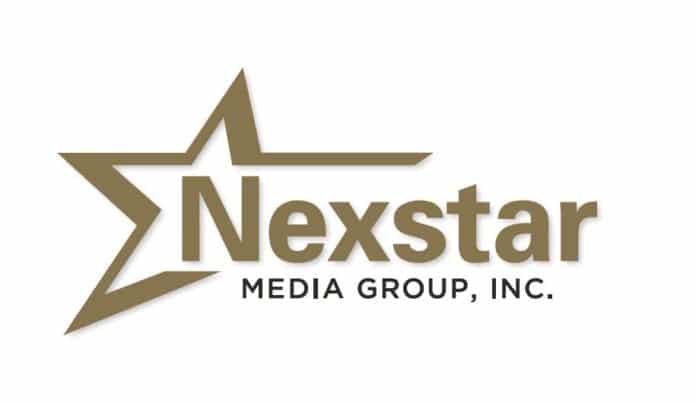As the clock struck 12:00am on Thursday, July 4, the United States of America prepared to celebrate its Independence Day.
For subscribers of AT&T-owned DirecTV, U-Verse and DirecTV NOW in markets where Nexstar Media Group operates, the fireworks had already erupted.
Unfortunately, the result was darkness and a “blackout” of all stations owned by Nexstar across the three services.
It’s the latest retransmission fee negotiation turned ugly, and this time it involves a company poised to become the nation’s biggest owner of broadcast TV stations following its merger with Tribune Media.
As is typical is such disputes, each side is blaming the other, and Nexstar struck first.
On July 4, Nexstar EVP/General Counsel Elizabeth Ryder and the PR team at Joe Jaffoni’s JCIR were busily preparing a press release distributed just before Noon, Eastern Time.
In it, it pointed figures at DirecTV and AT&T U-Verse for “unilaterally” dropping more than 120 Nexstar stations across 97 U.S. market.
“The action follows DirecTV’s refusal to accept an offer of an unconditional extension of the existing distribution agreement to August 2 to allow the stations’ owner, Nexstar, and DirecTV/AT&T to reach a new agreement” allowing the direct broadcast satellite service provider, as well as AT&T’s U-verse systems and its subscription streaming television service, DirecTV NOW, to prevent a “blackout” — something the services are required to do, by law, in the absence of a fresh retransmission agreement.
Nexstar went on by touting its “long-term record of delivering exemplary service to the local markets where it operates,” and how it “deeply regrets” the rejection of the extension.
The broadcast TV company founded and led by Perry Sook then suggested that subscribers of AT&T-owned services consider local cable providers, DISH Network, Verizon’s FIOS or the good ‘ol digital TV antenna.
In further defense, Nexstar’s release said the yanking of its station from the DirecTV services and U-Verse is “highly unusual for Nexstar but far more common for” DirecTV and its parent.
“Nexstar has established a long-term record of completing hundreds of agreements with multichannel video programming distributors for the carriage of its television stations and is proud that it has never in its 23-year history had a service interruption related to distribution agreements of the magnitude of the AT&T/DirecTV interruption,” it said.
In contrast, Nexstar continued, “DirecTV is routinely involved in disputes with content providers and following its 2015 acquisition by AT&T has dropped or threatened to black out network and local community programming from DISH Network, Viacom, SJL Broadcasting/Lilly Broadcasting, and others.”
The company pointed out that between May 30 and June 10 alone, viewers of at least 20 other non-Nexstar stations — owned by Deerfield Media, GoCom Media of Illinois, Howard Stirk Holdings, Mercury Broadcast Group, MPS Media, Nashville License Holdings, Roberts Media, Second Generation of Iowa and Waitt Broadcasting — lost access to network and local content “as a result AT&T/DirecTV’s refusal to accept fair market rates for the distribution of leading non-AT&T programming.”
Nexstar’s comments further put the blame on AT&T.
That said, the company had a few choice words of its own for Nexstar. On a “TV promise” microsite, AT&T addressed customers with local stations owned by Nexstar.
“We had hoped to prevent Nexstar from removing its stations from your TV channel lineup,” it said. “We even offered Nexstar more money to keep their stations available. However, Nexstar simply said no and chose to remove them instead. By doing so, Nexstar has put you in the center of its negotiations.”
AT&T then detailed what it assailed as “The Nexstar Playbook.”
What’s that? “Nexstar pulls or threatens to pull their stations from the customers of TV providers to increase fees for stations far beyond their value. They’ve done it to Cox Cable, DISH, and Charter Spectrum, and now they’re doing it to us.”
In its defense, AT&T complained that ABC, CBS, FOX, and NBC “have together lost about half their prime-time audience over the past few years” and that, despite this, “Nexstar is demanding the largest increase that AT&T has ever seen from any content provider.”
AT&T continued, “By asking us to pay even for viewers who choose to receive Nexstar stations for free over the air or through other means, Nexstar is also reducing consumer choice. For a company seeking to become the largest broadcaster in America, this is behavior that should not be rewarded.”
In Tampa, subscribers to the AT&T-owned services have lost access to the NBC affiliate, WFLA-8, and unaffiliated Nexstar sibling WTTA-38.
Instead, the following screen image is displayed:






The “Nexstar Playbook” of pulling their stations off of cable and satellite carriers, then demanding larger increases in the fees the carriers need to pay to carry the stations, is an abuse of power. The Nexstar purchase of Tribune deal should be rejected by the FCC based on this playbook behavior. They are using their local market extensive reach status to extort money from carriers. If the Nexstar/Tribune deal would go through, Nexstar would clearly be a massive monopoly of audience reach on a national scale and that’s dangerous. How can this be allowed when TV station licenses are granted under the assumption of acting as public service?
Yes i need NBC back on because you ruin it! American Ninja Warriors! Soap show! Preseason football is coming up soon you better get NBC back on asap
ATT and Nexstar are ridiculous. Cutting out our FOX affiliate and local station. Another reason to ditch ATT. FU media corporations. It’s hard to feel sorry for either one, but since ATT is the bigger player, we’ll blame them. Get our channels and shows back on the air!
Comments are closed.